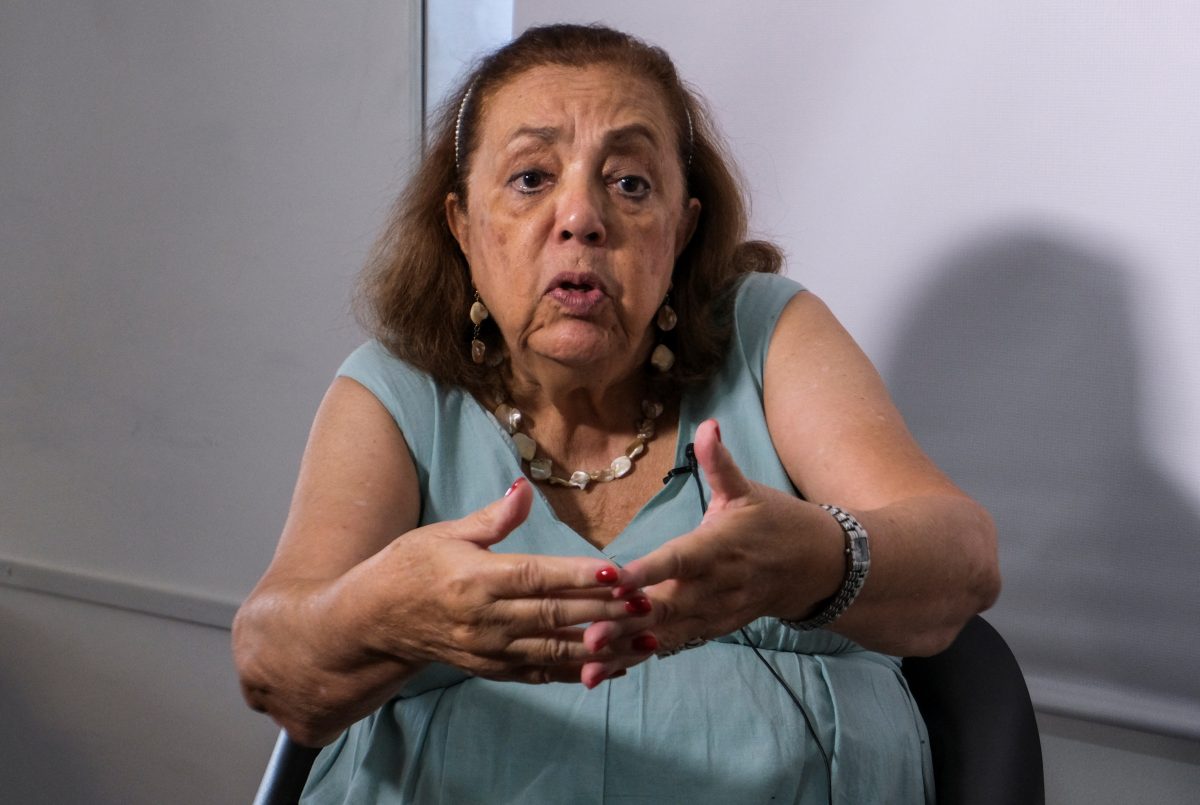CARACAS, (Reuters) – A major Venezuelan opposition group has registered a candidate for July’s presidential election to ensure a spot on the ballot, even though the primary winner and her alternate were unable to sign up, electoral authorities and sources said today.
The broad opposition coalition was left without an elected candidate after Maria Corina Machado, who won the opposition nominating contest by a landslide last year to run against incumbent President Nicolas Maduro, had a public office ban upheld, prompting the reimposition of some U.S. sanctions.
The Democratic Unity group, part of a larger coalition of opposition parties, registered a candidate before a Monday deadline, the national electoral council said.
Three opposition sources told Reuters the registration of Edmundo Gonzalez, a former ambassador, is meant to hold a spot on the ballot for a possible substitute, who can be named until April 20.
Machado had named Corina Yoris as an alternate, but Yoris was unable to access the electoral authority’s online system to register before the deadline.
“Everyone knew Machado would not get through (the registration system),” one of the sources said. “The registration of Edmundo is a cover.”
“The spot on the ballot for Democratic Unity was saved with a name, to later substitute that name,” another said.
The oil-rich South American country, whose socialist government is under U.S. sanctions for repressing political opposition and alleged criminal activity that it denies, has faced a long-running economic crisis marked by a weak currency and hyperinflation.
The opposition will likely now hold internal negotiations about who to back against Maduro and who could possibly be substituted for the registered candidates, according to analysts.
Machado insisted earlier on Tuesday that the Unitary Platform coalition’s candidate was still Yoris.
The A New Time party, which until Monday had backed Machado as part of the coalition, also registered its own candidate, Manuel Rosales, the current governor of Zulia province.
Rosales, who some in the opposition say has become too close to the ruling party during his governorship, said earlier on Tuesday he had registered to prevent opposition absenteeism.
“I had to take a decision, it was either open a space for Venezuelans to vote or go to abstention and Maduro stays six more years there without doing anything,” Rosales told journalists about his eleventh-hour registration.
Asked if she would consider an alliance with Rosales, Machado said she is taking decisions “day by day.”
“The country is processing a huge disappointment,” Machado said. “We will not be moved from an electoral process where Venezuelans can freely choose to elect who they want, not who is imposed by the regime.”
OPPOSITION DIVISION?
Various opinion polls had forecast Machado, 56, would pick up at least 50% of votes, while Maduro, a 61-year-old former bus driver who has been president since predecessor Hugo Chavez died in 2013, was projected to receive around 20%.
It was unclear if any of the registered opposition figures could rally as much support as Machado, especially if she does not wholeheartedly back them.
The arrests of close Machado allies last week, as well as the issue of warrants for the capture of seven others, prompted international outcry.
The United States started re-imposing sanctions and warned about the April expiry of oil sanctions relaxations after Machado’s ban, imposed over her support of U.S. sanctions and accusations of corruption that she denies, was upheld in January.
A White House National Security Council spokesperson said earlier on Tuesday the U.S. was deeply concerned that Yoris was unable to register and was working with other members of the international community to ensure Venezuelans could participate in inclusive and competitive elections.
“As we stated in January, we are committed to maintaining sanctions relief if Maduro upholds the commitments outlined in the agreed-to Barbados electoral roadmap,” the spokesperson said, referring to the October electoral deal that originally led the U.S. to relax some sanctions.
Venezuela’s neighbors Colombia and Brazil, which both have leftist presidents, each expressed concern in their own statements, urging compliance with the electoral deal.

